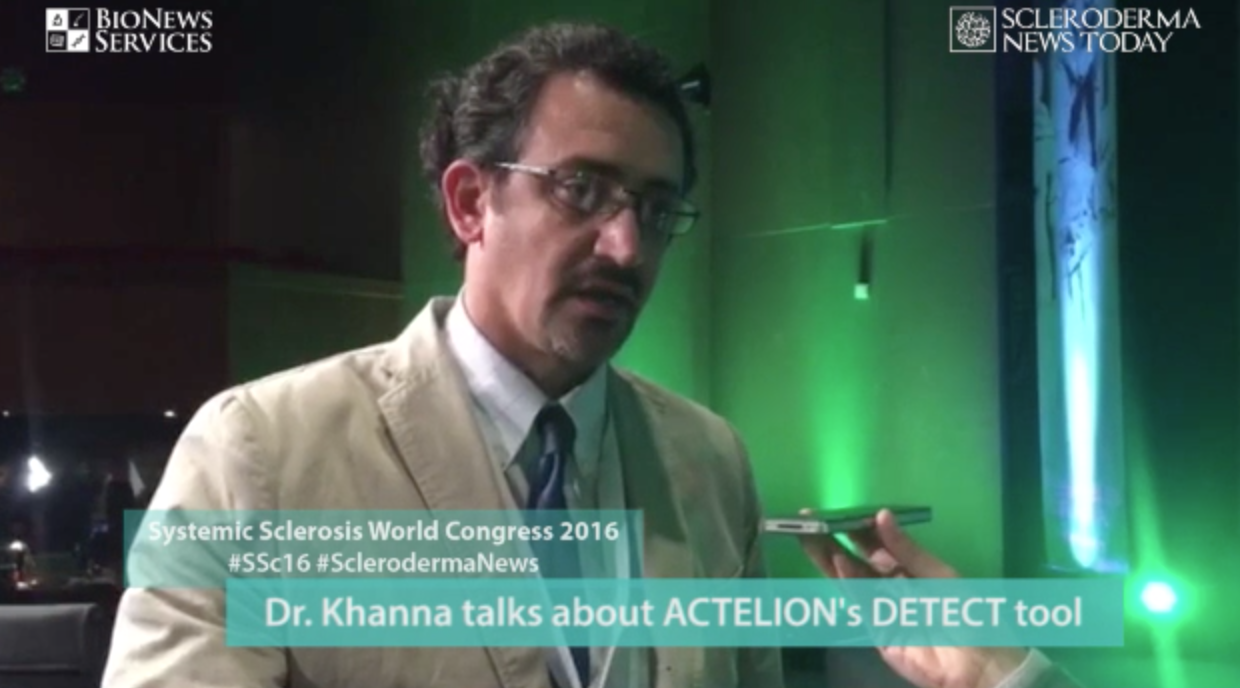Actelion Stresses Importance of PAH Early Detection, Life Quality at 2016 SSc World Congress and in Exclusive Interview
Written by |

New data was recently presented regarding Actelion Pharmaceuticals’ therapies and strategies to improve clinical outcomes in patients with pulmonary arterial hypertension (PAH). The data were presented at the Actelion Satellite Symposium, titled “Improving outcome in pulmonary arterial hypertension,” which was part of the 4th Systemic Sclerosis World Congress held in Lisbon, Portugal, on Feb. 18-20, 2016.
Dr. Marc Humbert, who presented his work at the symposium, emphasized the importance of combination therapy for PAH management. Dr. Ulf Müller-Ladner, in turn, called attention to quality of life issues, emphasizing that PAH patients often “suffer from depression, anxiety and stress,” that the disease “has a significant burden on employment, status and income,” and to decreased quality of life as a predictor of mortality.
Dr. Müller-Ladner also reported in his presentation that Actelion’s therapies bosentan (Tracleer) and macitentan (Opsumit) are able to “improve the health-related quality of life in patients with PAH.” Bosentan has been shown to considerably reduce pulmonary vascular resistance and clinical worsening in PAH patients, while macitentan has been proven effective in reducing clinical worsening and improving exercise capacity. Both drugs are approved by the U.S. Food and Drug Administration (FDA) as PAH therapies.
Dr. Dinesh Khanna, another presenter, gave a talk titled “Improving screening in PAH — Personal experience with the DETECT algorithm.” DETECT is an algorithm developed to aid diagnosing PAH in patients with systemic sclerosis (SSc), with the goal of minimizing the number of missed PAH diagnoses and optimizing the use of the standard diagnostic technique — right heart catheterization (RHC).
As Dr. Khanna noted in his talk, “PAH-SSc patients have a particularly poor prognosis” and “screening may lead to early diagnosis and beneficial early intervention.” He also mentioned his experience with the successful implementation of DETECT at the University of Michigan about three years ago, and highlighted the fact that “DETECT has been included in recent recommendations for PAH screening in SSc.”
Dr. Khanna, in an exclusive interview with Scleroderma New Today correspondent Dr. Ana de Barros at the symposium, emphasized that currently “many centers around the world are using the DETECT algorithm (…) it is very reliable, it is very easy to do, it is very feasible in a physical/clinical practice.”





